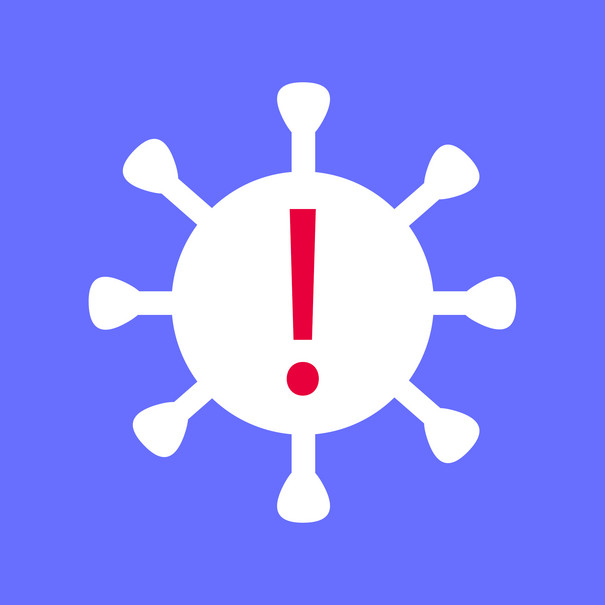
Regulations for pandemic operations during the winter semester 2021/22 at the UdK Berlin
Regulations for pandemic operations
ATTENTION!
All UdK members receive important updates by e-mail to their UdK e-mail address.
Please therefore check your UdK e-mail address regularly.
To use and set up your UdK account see:
https://www.oase.udk-berlin.de/udk-oase-nutzeraccount/beschaeftigte/
https://portal.udk-berlin.de/cgi-bin/self-service-portal.pl?mode=reactivate&isreset=1
https://www.oase.udk-berlin.de/oase/ (Video instructions for setup)
Unfortunately, it is not possible to include private email addresses in the business mailing lists.
THIS DOCUMENT WILL BE ADAPTED ACCORDING TO CURRENT DEVELOPMENTS AND UPDATED ACCORDINGLY
Last revised: 4 January 2022
The Berlin University of the Arts is aware of its responsibility for the health of its staff, teachers and students. Since the beginning of the pandemic, the UdK Berlin has taken far-reaching decisions with the State of Berlin, in the circle of Berlin's universities and in the crisis committee of the UdK Berlin to slow down the spread of the corona virus.
We continue to ask all members of the university to regularly check the information on the UdK website, where we publish the current status of the measures.
(As of 11 February, the novel coronavirus that has to date temporarily been designated 2019-nCoV has been known by a new name: SARS-CoV-2. The acronym SARS stands for Severe Acute Respiratory Syndrome. The name is a reference to the closely related SARS virus that triggered an epidemic in 2002/2003)
Where can I find official information to assess the risk situation?
Germany Federal Ministry of Health
www.bundesgesundheitsministerium.de/coronavirus.html
Constantly updated information can be found here:
https://www.rki.de/DE/Content/InfAZ/N/Neuartiges_Coronavirus/nCoV.html
https://www.bzga.de
What measures can I take to protect myself?
When can I get tested?
Criteria for a test are met when
Even before the test result is available, one should isolate oneself, i.e. stay at home, avoid all close contact, maintain good hand hygiene and wear a mouth and nose protector when in contact with others (if available). Status: RKI 24.03.2020
This questionnaire from the Charité provides you with information and recommendations on coronavirus. It can help you to assess whether a corona test is necessary: https://covapp.charite.de/intro/de.html
Where can I go if I suspect an infection?
In case of a suspected coronavirus infection, e.g. a person who has recently returned from a highrisk zone is showing symptoms, first contact the responsible health department by telephone to discuss what to do next.
For contact details of the various health authorities, please visit here
What regulations apply to childcare as a result of the closure of daycare centres and schools?
The following applies to all employees who cannot guarantee care at short notice due to the closure of day-care centres and schools
1. According to § 56 IfSG in the period from 28 March 2021 to 19 March 2022 for children up to twelve years of age and children with increased care requirements / disabilities a leave from work with continued payment of up to 34 working days in total (for a 5-day week) may be granted, if
in the event of temporary closure of facilities for the care of children, schools, facilities for the care of persons with disabilities in order to prevent the spread of infections or communicable diseases, or
when they are prohibited from entering, or
when school or company holidays are ordered or extended, or
where compulsory attendance at schools is withdrawn, or
if access to childcare is restricted for reasons of protection against infection, or
if the child does not attend the facility due to a recommendation by the authorities
and
alternative childcare cannot otherwise be provided.
The possibilities of mobile working are to be used as a matter of priority, positive working time balances are to be reduced as a matter of priority. In the case of civil servants, there must be no compelling official reasons to the contrary. The days off do not have to be taken consecutively. If the weekly working time is distributed over more than five working days, the proportion shall be increased or decreased accordingly.
2. Statutorily insured persons are also entitled in 2022 to children's sick days of up to 30 days (in the case of single parents up to 60 days) per year for each child Sick pay must be applied for from the health insurance fund. The entitlement also exists in the cases mentioned under 1. until 19 March 2022.
3. To ensure the care of children: Informal application for leave or flexi days by email to superiors using flexi time / overtime minutes.
4. Flexible use of home office: For all employees of the administration with an intra-account, the web access for the official email address can be used: https://xmail.udk-berlin.de/owa/auth/logon.aspx . Employees can apply for technical access to mobile working via their superiors.
Members of the university:
What should I do if a coronavirus outbreak is suspected at the university?
Here you can find the procedure in cases of infection or suspected infection.
Can I stay home from work on the grounds of a greater probability of being infected, e.g. due to travel to/from work, or contact with others at the workplace?
No, you are still under an obligation to work, even if there are concerns about possible infection.
Where can I go if there is a suspicion of infection?
If you suspect a corona virus infection, stay at home, report sick to your superior and contact your family doctor or our company doctor by telephone (betriebsarzt@udk-berlin.de).
Please note: if you are unable to work during the infection, you must submit a certificate of incapacity for work to the HR Departement, as usual. During the isolation you can send it by mail (as a photo or scan), the original can be submitted after the end of the isolation.
Here you can find the procedure in cases of infection or suspected infection.
What happens to my claim for compensation if the university is closed due to the spread of the virus?
In the event of a coronavirus outbreak, if the employer is unable to employ workers due to an infection control order issued by the authorities, employees will be exempted from the obligation to work. In this case, employees are considered to be unable to work. In principle, the employer remains obliged to pay remuneration if the employees are capable of working and ready to work, but the employer is unable to employ them for reasons for which the employer is responsible (e.g. an official order for closure). It is not necessary to work extra hours to make up for the time missed on these grounds.
Public transport is being shut down and I cannot get to work.
The employee bears the “risk of transit”, i.e. he/she is responsible for arriving to work on time. It is recommended to book car-pooling well in advance as a precaution. If this is not possible and you have no way of reaching your workplace, please contact your manager and discuss the possibility of taking short-term leave and/or time-off in lieu. We will try to work with you to reach an uncomplicated solution.
Is there a pandemic plan?
The pandemic plan is the control instrument of the university management and the crisis management team, which defines the necessary steps for different stages of a crisis. The plan is constantly kept up to date. It is available to university members on the intranet (Attention: Please log in in advance): https://intern.udk-berlin.de/hochschule/. University members are continuously informed about current measures.
Do masks protect against infection with the coronavirus?
Here you will find helpful information about: PDF
Where can I find help in personal emergency and crisis situations?
Here you will find a selection of contacts who offer you individual help and advice even in times of coronavirus.
Further information and more detailed descriptions of some contact points can also be found here: https://www.udk-berlin.de/Kontaktstellen.pdf
If you have any questions, please contact the internal medical officer at UdK Berlin:
Stefan Linnig, MPH
Specialist in occupational medicine
E-Mail: betriebsarzt@udk-berlin.de
Contact by telephone: (030) 3185 2925
Contact university management:
Office of the President / Office of the Chancellor
Phone: (030) 3185 2445 / 2447
kanzlerin@udk-berlin.de
praesident@udk-berlin.de
Contact Building Management and Occupational Safety Department
Central (030) 3185-0 (Mon-Fri from 10 to 15 o'clock)
Hardenbergstr. control centre (24h): (030) 3185 2222
Präsident Prof. Dr. Norbert Palz
Kanzlerin Dr. Ulrike Prechtl-Fröhlich
Advisory members
Persönliche Referentin des Präsidenten Lisa Rost
Leitung Stabsstelle Presse / Kommunikation Claudia Assmann
Leitung Referat für Studien- und Gremienangelegenheiten Julia Kühlcke
Leitung Personalreferat Claudia Grotti
Leitung Referat für Planung, Organisation und Datenverarbeitung Alexandros Gougousoudis
Leitung Referat für Gebäudemanagement und Arbeitssicherheit Irina Heckendorff
Betriebsarzt MPH Stefan Linnig

Regulations for pandemic operations

Get the latest news about the current developments and immediate measures of coronavirus at UdK Berlin on our twitter channel @DerKunste.

Here you can find all the informations about the current developments of the coronavirus and immediate measures at the UdK Berlin.